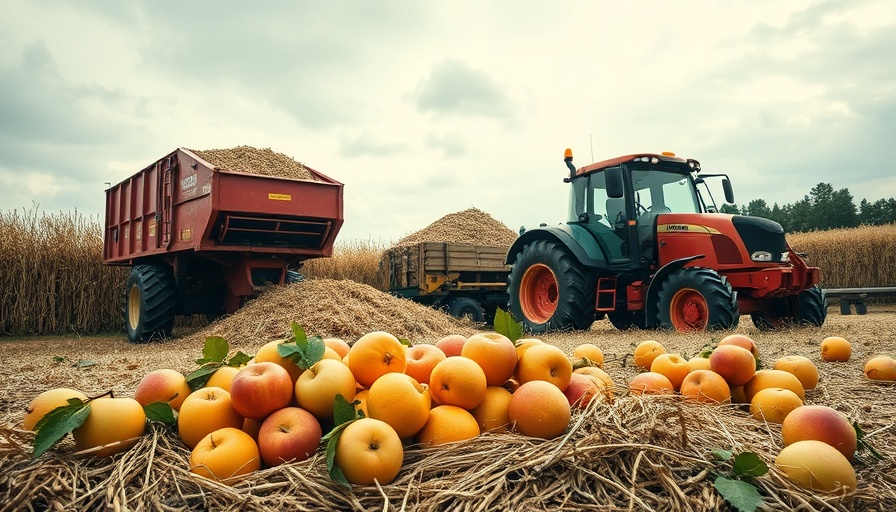
Understanding the Impact of Food Waste on Greenhouse Gas Emissions
Food waste is more than just a household inconvenience; it represents a massive loss of resources and significantly contributes to global greenhouse gas (GHG) emissions. Studies indicate that nearly a third of food intended for human consumption is never eaten, leading to dire consequences for food security and the environment.
Innovative Solutions for Food Waste Recycling
Recent research highlights innovative methods for recycling food waste, including composting, anaerobic digestion, and refeeding. These techniques can effectively mitigate GHG emissions when used instead of traditional landfill disposable methods. Anaerobic digestion, for instance, breaks down organic materials to produce biogas, a renewable energy source that can play a pivotal role in lowering overall emissions.
Why Recycling Food Waste Matters
When food waste is simply tossed into landfills, it decomposes anaerobically, releasing methane—one of the most potent greenhouse gases, with a warming effect significantly more potent than carbon dioxide. This emphasizes the importance of adopting recycling methods that prevent this harmful emission. Zhengxia Dou, co-author of the study, urges that “anything you can do with food waste recycling is better than sending it to a landfill.” Thus, the shift towards a circular agrifood system not only aids in resource conservation but is crucial for climate change mitigation.
Global Perspectives: The Role of Major Food Producers
The issue of food waste is not confined to any single country. Major players like the European Union, the United States, and China produce enormous amounts of food waste regularly. These regions are considered “methane super emitters” due to their inadequate disposal strategies. Dou’s research shows that eliminating food waste disposal in landfills could reduce GHG emissions equivalent to the output of nearly nine million dairy cows in the U.S. alone.
Future Directions for Sustainable Practices
As awareness around food waste issues grows, it’s essential for individuals and countries to adopt sustainable practices. Incorporating solution-oriented strategies can not only tackle food waste but also align with broader environmental goals. Communities are encouraged to explore composting programs, food-sharing initiatives, and partnerships with local farms that can utilize excess food productively.
Take Action for a Sustainable Future
As individuals, consumers can play a transformative role by educating themselves on food waste management. Simple practices at home—such as planning meals better, understanding food labels, and composting—can have a significant impact on both our communities and the planet. Everyone has a stake in the fight against climate change, and together we can make a difference.
 Add Row
Add Row  Add
Add 




Write A Comment